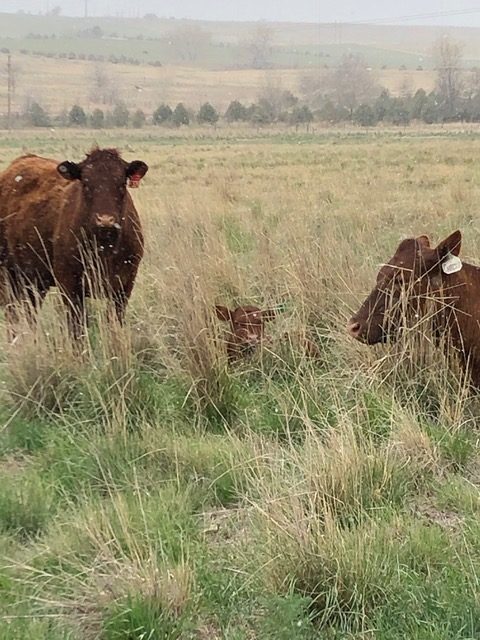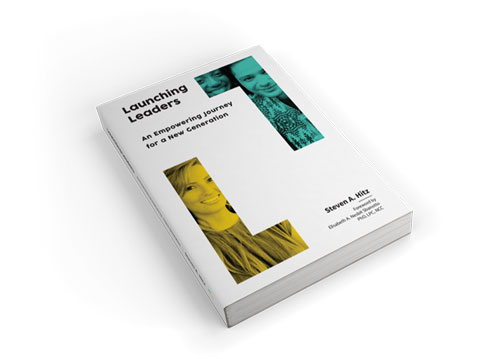It’s calving season on the ranch. Newborn calves are cared for by their mamma cows from the moment of birth. It’s a beautiful thing to see the mom licking and cleaning up her calf, and then watching the calf stand with shaky legs, nurse, then within thirty minutes run wherever mom goes. The draw to each other is instinctual. As the calf grows, integration with the herd is also innate—they NEED each other. The mama cows provide protection, comfort, play mates, even playful rivalries—all for the good of the new-born calves and developing herd.

Unlike us humans, cows are not distracted by shining screens in their faces, bombarded with all knowledge at their hoof tips, or worried about the negative factors of social media. No one is mooing in their ear “Aww, I’m the only one not invited to that party,” or “Guess I’m not in the ‘in’ crowd.” They just happily live instinctively and thrive in their realm.
In our human world the noise that surrounds us can single us out, putting us in a box of loneliness, anxiety and depression. How can we learn from my cow friends and integrate naturally with the herd and rediscover our need for each other?
It turns out that loneliness (which is a primary factor in developing anxiety and depression) is not so much the absence of other people; it’s the sense that you’re not sharing anything that matters with anyone else. We become soooo busy with the noise, that our natural instincts are smothered, taking us away from loving relationships and from developing life pursuits that make a difference in the world. Without these, life can feel very lonely.
I recently read in Lost Connections by Johann Hari, where he describes admitting himself into a recovery program for Internet addicts. He was surprised to learn that over 90 percent of those in the facility had anxiety and depression before they turned to the Internet for comfort. The Internet was born into a world where many had already lost their connection to others. The Internet offered them a type of meaning they were missing. Social media friends replaced neighbors, and video games (especially the ones that have multiple players around the world) replaced meaningful work and became their tribes as they immersed themselves into alternate realities. Far from “instinctual” it became habitual—even addictive.
We humans are meant to be social creatures—to be able to see and touch and smell and listen to each other. We are meant to be in connected; to care for each other and be engaged emotionally. We ought not to put a screen between us and what is instinctual, as doing so keeps us from connecting to what actually brings happiness and joy—naturally.
Let’s consider four ideas for returning to our instincts and put some distance between real and alternate realities; between a more holistic life and anxiety and depression.
- Accept your instincts and boldly step into them. Few want to take a risk of being hurt in any way. But if we take no action toward our instincts, we let uncertainty be our guide. I don’t mean step into the vices of humankind or the carnal world. There is a difference between stepping into your instincts versus succumbing to selfish desires. You know these differences intuitively. In following natural instincts, I’m encouraging you to follow what your heart is telling you, and step into that goodness. I challenge you to put this to the test and see if it doesn’t bring handsome returns.
- Return to the herd. Loneliness is not just about an absence of relationships with others, but rather a lack of purpose in our lives. We still need to be around those who are genuinely supportive. This is part of the risk we take in stepping into our instincts—there is a chance of being burned. The benefits of this risk, however, can only bring good—either in solutions or other lessons learned. Who doesn’t need real friends, relationships that are much more than screen shots, and a tribe that can address our life needs, wants, and concerns? Discovering purpose doesn’t happen in isolation, it happens as we mingle with the herd.
- Decide to exercise your freedom to choose. We do have choices, but do we consider how isolating and addictive behaviors hamper our instincts? We can stop killing the natural emotions that come into our hearts and heads by choosing to put away our fears. If we step boldly into our instincts, our decision to exercise choice (rather than be a passive player in life) begins to come from a place of hope and not fear; from trust rather than distrust.
- Don’t pre-judge. It seems that this is already a keen part of the value make-up of Millennials and Gen Z —to not judge harshly and to be more accepting of everyone’s views. If that is the case, then cease judging yourself and those instincts that will give you solutions to address the things that matter most. Don’t judge the outcome or anticipate it being negative before you try it on.
Calving season seemed to put much of this into perspective for me. I hope the analogy was helpful to you as well. Allow nature to take its course, accept the “mothering” of those who love you, join the herd, take on risk, decide to exercise your freedom to choose, don’t pre-judge, and enjoy the journey!





